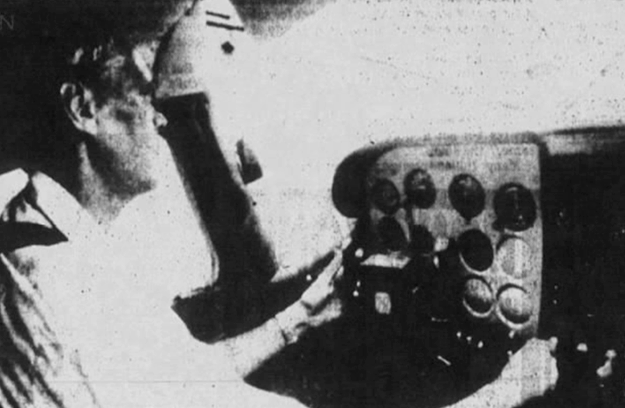Date: October 11, 1980
Location: Racine, WI
By: George W. Cornell
Newspaper: The Journal Times
Page: 4A
A documentary about Wings of Hope will be broadcast at noon Sunday on WLS-TV, Channel 7 in Chicago, and i a.m. Monday on WISN-TV, Channel 12 in Milwaukee.
NEW YORK – In a way, it seems to take a warrior to bear up in the harsh struggles some people must make just to survive in peace.
That’s the observation of an interfaith, air-service organization, Wings of Hope, whose pilots, all volunteers, provide radio and air links for missionary and other organizations working on development projects among the poor in remote areas, functionally inaccessible on the ground.
“It takes a strong person,” says William D. Edwards, executive director of the organization whose St. Louis headquarters crackle with shortwave radio communications with remote bases abroad.
“We serve only in the hinterlands where there’s no other way in or out,” says Edwards. “Conditions generally are subhuman, in medicine, education and diet, with just the bare beginnings toward civilization.
“Our aim is to make active the gospel imperative to feed the hungry, clothe the naked, help the sick and hurt.”
The needed qualities, he says, are “much the same” as in war.
“But it also takes spiritual and moral conviction, a deep concern for brothers in need under difficult circumstances,” he adds. “”We have some rough-and-ready guys out there. But unless they’ve got real compassion, too, the soft touch, they don’t work out in this game.”
The peculiar combination is explored in a telling, sensitive TV documentary, “Missionary,” being shown Sunday on the ABC program, Directions, in cooperation with the National Council of Churches.
“It’s a nagging, old question,” says the film’s producer and narrator, Howard Enders, a World War II infantry veteran himself. He asks one of the fliers, a former Navy-combat pilot, how he squares being a man both of war and peace.
“A man who wants to keep this peace occasionally has to war,” says Roy Johnsen, 51, serving to fly basic necessities to a remote colony in the Honduran jungles and to ferry the ill and injured for medical aid.
“It’s much the same kind of battle,” he says, comparing the service in Honduras to past wartime flying in Korea and Vietnam. Instead of enemy gunfire, “we have some other very real enemies. And perhaps even greater dangers.”
Those pressures are brought out in the film, including difficulties that proved too strenuous for one replacement pilot and also the breakdown of a Peace Corps mission of young idealists in strain, fear and a flare of violence.
But Johnsen, a former Navy commander, veteran of 20 years of military flying with numerous combat decorations, blends in heartily with the rugged duty, the poor, pioneering peasants clearing land, striving to build a better life, the hardships and emergencies.
Scenes of the film alternate between Johnsen’s military role and his role in the isolated, frontier combat for life. “My heart is back there,” says Johnsen of Albany, N.Y., who finished his Honduran stint recently and now works for the Federal Aviation Administration.
Since the “Wings” organization was started 18 years ago, more than half its fliers have been former military pilots, as is Johnsen’s replacement, Theodore Kessler, 39, of Houston.
The “Wings” organization, limiting itself to helping humanitarian projects of others, is distinctive in that sense from other missionary flying organizations, such as the Missionary Aviation Fellowship and the Jungle Aviation and Radio Service.
The fellowship, based in Redlands, Calif., has some 105 pilots serving evangelistic mission outposts, while North Carolina-based JAARS, a service of the Wycliff translators of unwritten languages into Scriptures, has 68 planes operating in its work.
The “Wings” organization, whose force of the Roman Catholic and Protestant pilots varies according to need between seven and 18, provides only their subsistence. They take leaves from jobs, volunteering their service.
Johnsen, the war-toughened flier who showed his mettle for similar hard duty in the jungle frontier of Honduras, says in the film.
“it’s not the problems you have in life, it’s what you do with them. The measure of a man is how he meets them. Some make it, some break. It’s kind of like a rock in a stream, if you can’t go over it, go around it or move it, or live with it.
“If we can show God’s love in our caring about others as God cares for us, we’re on our way … A greater being than I controls the destiny of man. I feel that the message to us and to the world is love, not hate, not destruction. I feel if I can use my talents in those areas, then it’s God’s credit, not mine. I’m just a tool in his hand.”
But he also comments of war: “There is a fantastic gut thrill that goes along with living on the edge.”
